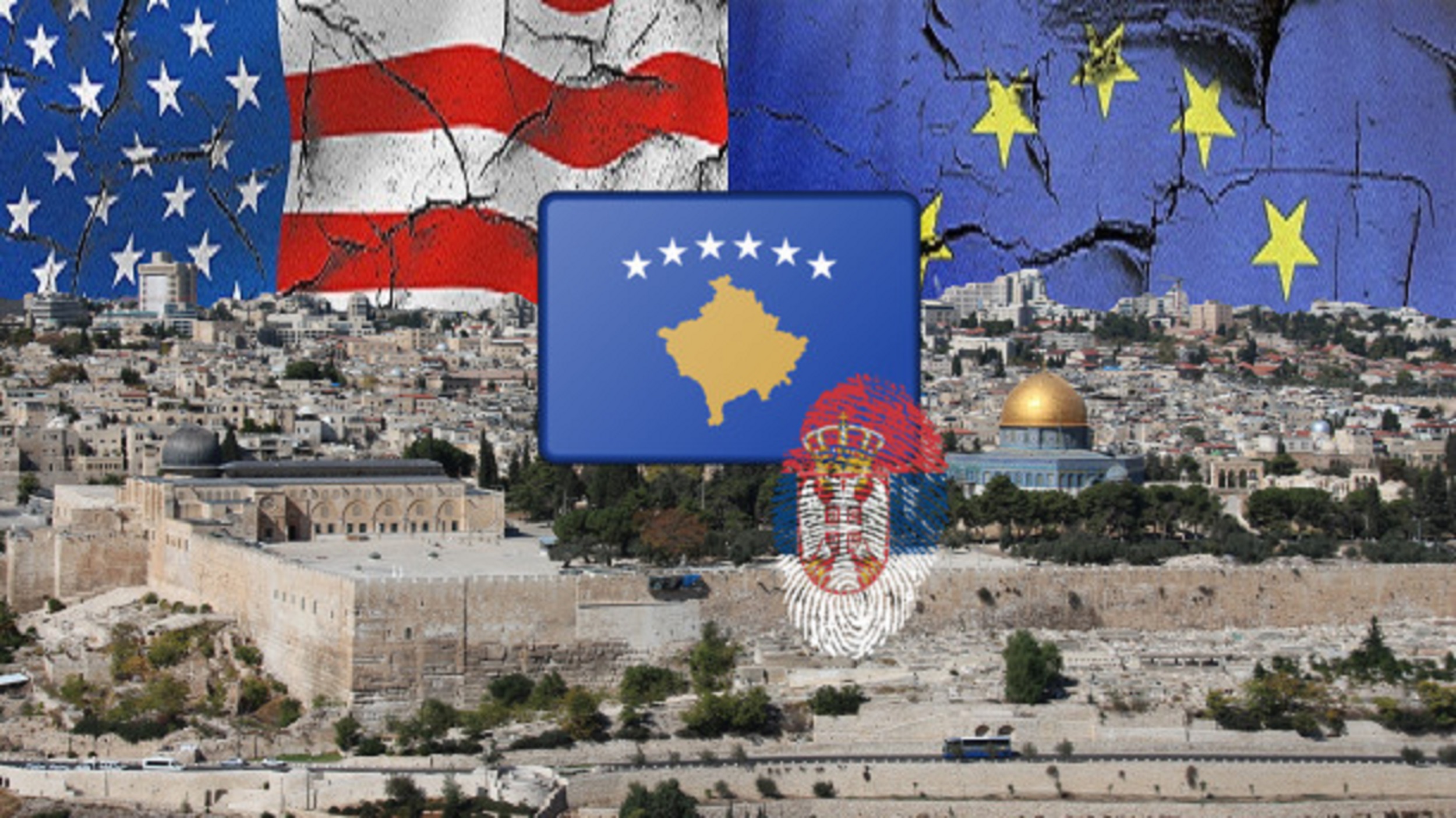Serbia Shaky on Jerusalem Embassy Commitment While Kosovo Stands Its Ground
Unwittingly and unwillingly, Israel is inserted into a European conflict
The US wanted a broker’s fee. And it may lead to a broken deal.
An American-led negotiation between bitter foes Serbia and Kosovo led to a breakthrough last Friday, when the two sides agreed to economic normalization, committing to upgrade transportation infrastructure and border crossings, cut tariffs and share energy and water resources, and pledging to implement earlier agreements related to the opening of highway and rail links.
A key for the US was to keep the negotiations centered on economics and trade – building the future – and away from more overtly political matters that might bring to the surface delicate issues that could easily derail discussions.
In the end, the US negotiated for itself a grab bag of its own priorities: Both Serbia and Kosovo agreed to exclude China from their 5G telecom infrastructure and to designate Hizbullah as a terrorist organization. And the US envoy for Serbia/Kosovo negotiations, Richard Grenell, said that perhaps the most important provision of all in the deal was that Serbia agreed to move its embassy in Israel from Tel Aviv to Jerusalem, and that Kosovo and Israel would establish formal relations, with a Kosovo Embassy to be planted in the Israeli capital, as well.
“It’s always better when relations are out in the open,” Avi Pazner, a veteran Israeli diplomat, told The Media Line.
Pazner was Israel’s first nonresident ambassador to Kosovan neighbor Albania and came in contact with Kosovo refugees during the brutal Kosovo War in the late 1990s.
“The possibilities become larger. There’s a great advantage to putting things on the table,” he said.
But, in the aftermath of the announcement, the European Union threatened that Serbian and Kosovan entry into the EU would be in jeopardy if they established embassies in Jerusalem, contrary to EU policy.
“The USA is a strategic ally of Kosovo. The EU statement is not a threat against Kosovo,” Alush Gashi, political and foreign policy adviser to Kosovo Prime Minister Avdullah Hoti, told The Media Line.
“It’s their position, which we respect, and we are not obliged by any agreement with the EU to not have a Kosovan foreign policy. It is our solemn right to choose our partners. Instead of advising us how we work with Israel, we encourage the EU to convince five EU member states who have not recognized Kosovo to do so,” said Gashi.
But, what if push comes to shove, and Kosovo finds itself in a tug of war between the US and EU on the Jerusalem issue?
“I hope we will not be forced to make that choice, and I believe we will not be forced to make that choice,” Kosovo’s ambassador to Washington, Vlora Çitaku, told The Media Line. “But, Kosovo has always aligned its foreign policy with the United States, and to a large extent, US and EU foreign policy are aligned.
“We believe it is the sovereign decision of Kosovo’s government to decide where it opens its embassies, and if there are explanations required, we will be ready and willing to give them. But, we are not going to walk back our decision to open our embassy in Jerusalem,” Çitaku said.
But, Serbian officials claimed following the White House announcement that their embassy move would hinge on Israel’s continued nonrecognition of Kosovo’s independence and that the Serbian-Israeli relations would be forever scarred should Jerusalem and Pristina consummate their new relationship.
Israel has been fearful that recognition of Kosovo would open the door for other nations to recognize a Palestinian state, which begs the question: Did Israel really want to take this step – even one that establishes full relations with a Muslim-majority country? Or, was it pressured into it by the US to provide election material for the Trump administration?
“I don’t believe it’s born out of pressure,” Çitaku told The Media Line. “Israel supported US-led intervention in Kosovo to stop the war and ethnic cleansing. Israel supported Kosovo’s membership in the International Monetary Fund and the World Bank. Our intelligence agencies have been working and cooperating very closely in the last decade, and there were exchanges between Israel and Kosovo. Up until now, our relations were very good. Sometimes, great things take time.”
“This deal wasn’t negotiated by Israel,” added Pazner. “Israel thought it was getting two embassies in Jerusalem. That’s a win-win. Why would it need to be pressured into that? If the terms weren’t clear, it is up to the mediator – in this case, the US – to refine the agreements, to make sure they work for everyone, and to clear up any misunderstandings with Serbia.”
One can see parallels between the US efforts to normalize relations between Kosovo and Serbia (trade and economics first, recognition and score-settling later) and its efforts to promote a resolution between Israel and the Palestinians. But, is that a fair comparison? Not for Kosovo.
“We are a young democracy, trying to extend a hand of friendship and being part of a solution and not a problem,” Gashi told The Media Line. “We see an economic agreement with Serbia as a prelude to mutual recognition. We hope that others will learn how Kosovo learned to be part of a process. As the International Court of Justice said, Kosovo is sui generis [a unique case not to be compared to others].”
But, even as unconventional US diplomacy has led to recent dramatic developments in the seemingly intractable Israeli-Palestinian conflict, it is possible that America may have overplayed its hand in what should have been a relatively straightforward stepping-stone agreement between Serbia and Kosovo, and unnecessarily injected the Middle East’s turmoil into one of Europe’s thornier political conflicts.

